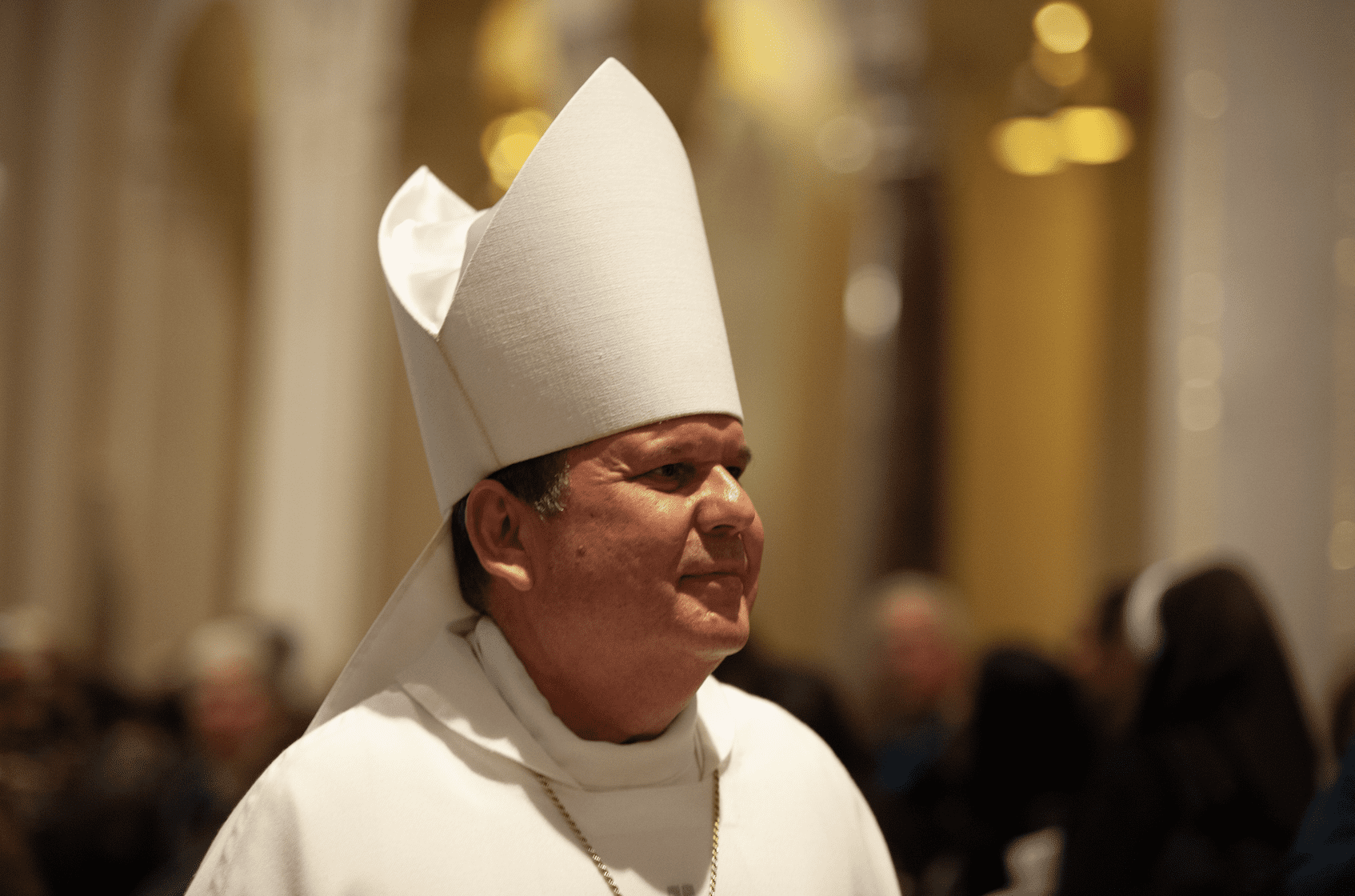Bishop Manuel Cruz reflects on year of change as auxiliary of Archdiocese of Newark
The past year has been all about change for Bishop Manuel A. Cruz, D.D., one of four active auxiliary bishops for the Archdiocese of Newark. And change is important, he says.
“I do like to emphasize the words of a very wise religious who said if we don’t change, we’ll perish,” Bishop Cruz said. “We cannot go back to what we were. Why? We have to get better. That’s important for me: to get better.”
A year ago, Pope Francis appointed three new auxiliary bishops to join Cardinal Joseph W. Tobin, C.Ss.R., in leading the Archdiocese. And so, Bishop Cruz, who had served as an auxiliary bishop since 2008, was joined by Bishop Elias R. Lorenzo, O.S.B., Bishop Michael A. Saporito, and Bishop Gregory J. Studerus.
Each was assigned as a regional bishop of the parishes in a particular county, with Bishop Cruz reassigned to Essex from Union County. In the past, auxiliary bishops also served as pastors, but that changed under Cardinal Tobin. This meant Bishop Cruz would resign his position as rector of the Cathedral Basilica of the Sacred Heart.
When he first introduced them in February 2020, Cardinal Tobin referred to the auxiliary bishops as “the principal partners of the archbishop.” He said he wants them to be “free to know the people of their county in a particular way” and to experience “the problems and joys of working in the vineyard.”
To this end, Bishop Cruz has spent much of the last year getting to know his brother priests in Essex County by visiting different parishes in person or via Zoom. He meets weekly with the Deans of Essex County as well as with Cardinal Tobin and his fellow auxiliary bishops.
“Everybody is working hard,” he said. “The priests are in the trenches. This is the new normal, and everybody is learning. Our lives have changed in so many ways. And we’re doing the best we can. Our priests are a source of encouragement to each other and to me. It’s edifying to see what they’re going through, and yet there they are working.”
While Bishop Cruz’s focus has shifted, he is still very much involved with the Hispanic community and continues to serve as the Vicar for the Archdiocese’s Hispanic Apostolate. He regularly celebrates Mass in Spanish during local parish visits and recently discussed the V National Encuentro with the U.S. Conference of Catholic Bishops.
“The Hispanic community is very, very important,” he said.
He described the weekly meetings with Cardinal Tobin and the other auxiliaries as fruitful with a tremendous openness in dealing with the issues of the Archdiocese. These include moving forward through the Covid-19 pandemic and bringing people back to the Eucharist, he said.
“That’s key,” Bishop Cruz said. “The Eucharist is the center of our lives. That’s the key sacrament to bring Christ to others.”
Bishop Cruz describes the pandemic experience as “pandemia” – an unprecedented and serious moment that will pass, but that offers important lessons.
“This time is a time of conversation,” he said. “It is a time to change. Our world has changed, and we have to ask ourselves: what are we learning? Ultimately, what we’re learning are surrender and trust. Trust that God is with us and surrender to his will. Hope springs eternal. There is hope beyond hope. This, too, shall pass. I believe those words.”
Bishop Cruz said it’s also essential to be present for other people.
“It’s important,” he said. “That’s what makes our lives different than a job, or just meetings, or just visions. No, we are here for our people, and I’m here for my brother priests.”
Bishop Cruz reflected on the themes of brotherhood and human frailty, saying that the relentless damage inflected by the tiny RNA coronavirus reveals how fragile we are but how resilient our spirit is.
This article is the fourth of a series featuring the four auxiliary bishops of the Archdiocese of Newark.


